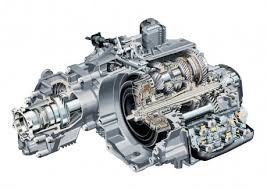Mobile:+86-311-808-126-83
Email:info@ydcastings.com
Innovative Techniques and Benefits of Aluminum Can Casting in Modern Manufacturing Processes
Aluminum Can Casting A Sustainable Approach to Modern Manufacturing
In an era where sustainability is at the forefront of industrial practices, aluminum can casting has emerged as a key player in the production of environmentally friendly products. Aluminum cans, quintessential in the beverage industry, offer a lightweight, recyclable, and durable option for packaging, and their casting process plays a significant role in reducing waste and conserving resources.
Aluminum casting involves melting aluminum and pouring it into molds to create specific shapes. This process is not only efficient but also versatile, allowing manufacturers to produce a wide range of designs. In the case of aluminum cans, the casting method utilized is often referred to as die casting, where molten aluminum is injected into molds under high pressure. This ensures precision in dimensions and smooth surfaces, critical attributes for containers that need to hold liquids safely while being lightweight and stackable.
One significant advantage of aluminum can casting is its inherent recyclability. Aluminum is one of the most recyclable materials available, and the recycling process itself is highly efficient. It requires only about 5% of the energy needed to produce new aluminum from raw materials. This significant reduction in energy consumption not only lowers greenhouse gas emissions but also promotes resource conservation. When manufacturers use recycled aluminum in their casting processes, they contribute to a circular economy, where the lifecycle of materials is extended, and waste is minimized.
The aluminum can casting process has also evolved with advancements in technology. Modern industrial practices incorporate computer-aided design (CAD) and computer numerical control (CNC) machining, which enhance the accuracy and efficiency of production. These innovations allow for the creation of complex shapes, making it possible to tailor can designs to meet consumer preferences while maintaining structural integrity and performance. Moreover, automated systems streamline the production process, reducing labor costs and increasing output.
aluminum can casting

Furthermore, aluminum cans have a significant impact on the beverage industry due to their lightweight nature, which reduces transportation costs and lowers the carbon footprint associated with distribution. As consumers increasingly demand convenient and eco-friendly packaging options, aluminum cans provide a perfect solution. They are not only easy to carry but also chilling efficiently, enhancing the consumer experience.
Despite the benefits of aluminum can casting, challenges remain. The primary concern lies in the extraction and processing of bauxite, the raw material from which aluminum is derived. Mining bauxite can lead to environmental degradation, including deforestation and ecosystem disruption. Manufacturers are therefore exploring alternative sources and more sustainable mining practices to mitigate these impacts.
On the consumer end, education is key. While many are aware that aluminum cans are recyclable, the actual recycling rates do not reflect this awareness. Efforts to raise awareness about the importance of recycling and how to properly dispose of cans can contribute to higher recycling rates and enhanced resource recovery.
In conclusion, aluminum can casting is a crucial element of modern manufacturing that aligns with sustainable practices. Its ability to produce lightweight, durable, and recyclable products makes it an ideal choice for the beverage industry. As technology continues to advance and consumer awareness grows, the future of aluminum can casting looks promising. By embracing these innovations and addressing the environmental challenges connected to raw material extraction, the industry can further enhance its sustainability commitments and play an essential role in a greener future.
-
Why Is Choosing the Right Motor Housing Critical for Engine Performance?NewsJul.18,2025
-
Which Impeller Types Best Optimize Your Pump’s Efficiency?NewsJul.18,2025
-
Optimize Maintenance Efficiency with Durable Oil Catch SolutionsNewsJul.18,2025
-
Maximize Pump Performance with Precision-Engineered ComponentsNewsJul.18,2025
-
Elevate Industrial Flow Systems with Precision-Engineered ComponentsNewsJul.18,2025
-
Boost Durability and Functionality with Precision Power CastingsNewsJul.18,2025











